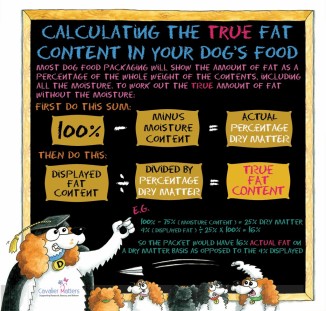Commonly Used Drugs for Pancreatitis
 Cerenia is an anti-sickness (anti-emetic) drug that is very useful for pancreatitis. As well as providing relief from nausea, it seems to be an effective pain killer. It is given once daily for a maximum of 5 days at a time. Vets have reported a significant improvement in tummy pain within an hour of taking this medicine. It is a good idea to have a couple of tablets handy at home to use at the first sign of any flare-up or sickness.
Cerenia is an anti-sickness (anti-emetic) drug that is very useful for pancreatitis. As well as providing relief from nausea, it seems to be an effective pain killer. It is given once daily for a maximum of 5 days at a time. Vets have reported a significant improvement in tummy pain within an hour of taking this medicine. It is a good idea to have a couple of tablets handy at home to use at the first sign of any flare-up or sickness.
Vetergesic is a strong pain killer given by injection when the pain is acute. This drug has a real sedative effect so do not feel alarmed if your dog seems to be spaced-out and unsteady when taking it.
Metronidazole is an antibiotic which has been shown to be helpful for relieving bacterial infections in the small intestine which can follow a bad attack of Pancreatitis – especially when left untreated for a few days. If the stools are runny, pale or show signs of slimy mucous then start this drug straight away to avoid any further symptoms.
IV Fluids are offered in severe cases when the dog is unable to eat or drink to avoid dehydration. You can also help keep your dog rehydrated at home by syringing water into the mouth at regular intervals.
Probiotics have been shown to help the tummy settle, and are a good supplement to continue even after a flare-up to keep the gut stable. The most popular one is Prokolin, a paste which you can get from your vet, which is especially good for helping with runny stools. For longer term management, Protexin powder is a more cost-effective solution. Again this can be prescribed by your vet, or you can buy it online from most of the popular shops, such as VioVet, VetUK and Animed Direct.
Dietary Changes for Dogs with Pancreatitis
 Pancreatitis is made worse by fatty food and certain oils, so to prevent another attack, diet changes need to be made. Ideally foods and treats need to be 8% fat and under. High meat or raw food diets are in general much higher in fat so this would need to be changed. Certain fish oil supplements will need to be stopped, salmon oil in particular is way too fatty for dogs with pancreatic issues, but some others, like krill, seem to be okay. Discuss any concerns you may have with your vet. Some dogs develop sensitivities to other foods. Too much rice can be a trigger, raw bones (even if they say they are low fat) have caused flare-ups, egg in moderation can be good but too much can be a problem. Basically anything high in protein needs to be monitored for overall fat content. White fish seems to be tolerated much better than oily fish. You can get a lot of popular dried fish treats which are low in fat but for some reason they can cause tummy issues too, so you really need to be careful. It may be a case of trial and error before you find the right balance for your dog.
Pancreatitis is made worse by fatty food and certain oils, so to prevent another attack, diet changes need to be made. Ideally foods and treats need to be 8% fat and under. High meat or raw food diets are in general much higher in fat so this would need to be changed. Certain fish oil supplements will need to be stopped, salmon oil in particular is way too fatty for dogs with pancreatic issues, but some others, like krill, seem to be okay. Discuss any concerns you may have with your vet. Some dogs develop sensitivities to other foods. Too much rice can be a trigger, raw bones (even if they say they are low fat) have caused flare-ups, egg in moderation can be good but too much can be a problem. Basically anything high in protein needs to be monitored for overall fat content. White fish seems to be tolerated much better than oily fish. You can get a lot of popular dried fish treats which are low in fat but for some reason they can cause tummy issues too, so you really need to be careful. It may be a case of trial and error before you find the right balance for your dog.
Royal Canin Gastro Intestinal Low Fat is one of the main foods your vet will recommend as it is low in fat and made especially for dogs with tummy issues.
Chappie Original wet food seems to be a very safe option, but it must be the original wet variety made from fish and without red meat, not one of the newer dry foods. Many people will question the quality, but for pancreatic issues it can make all the difference.

